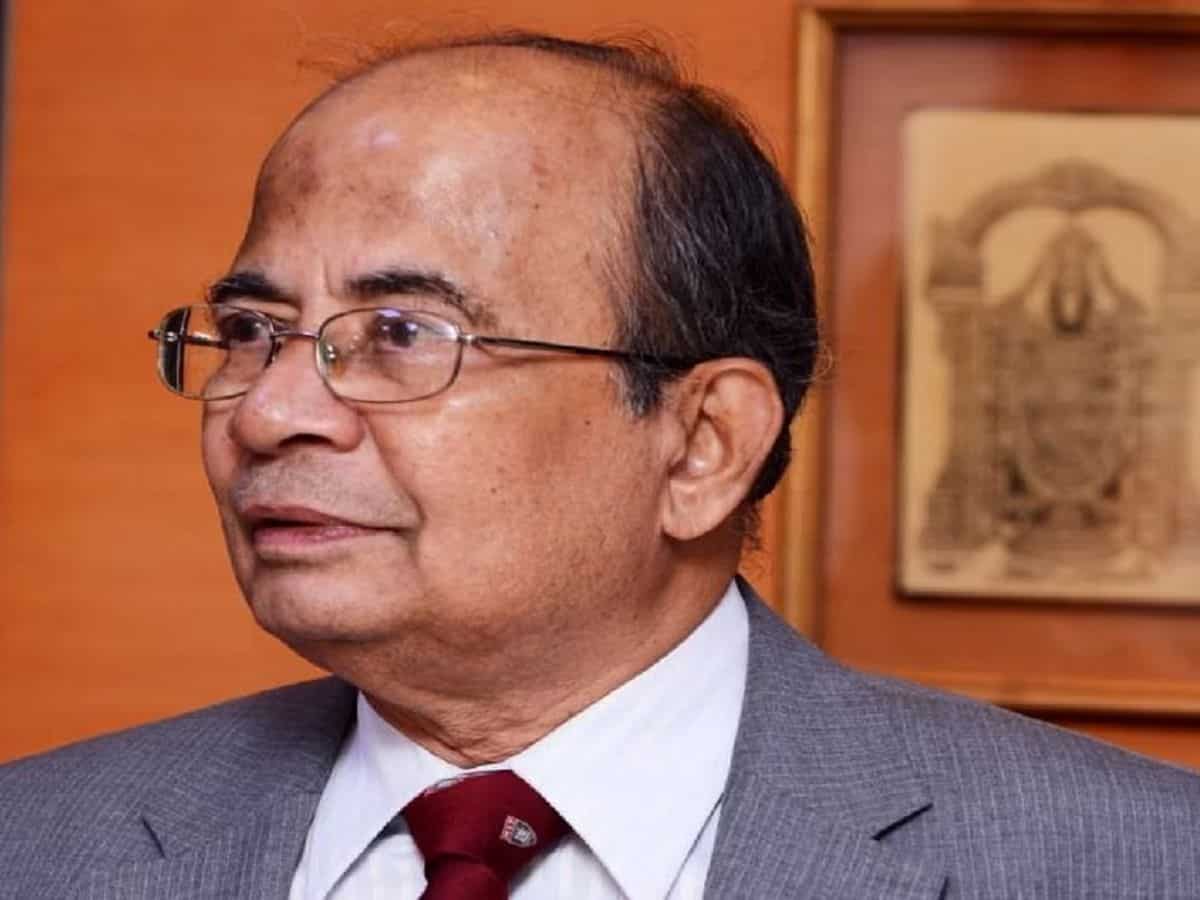
“In India, especially in organisations and companies, the reward for the hard work of an employee is more work.” This was one of the trademark statements by N Vittal, the former chief vigilance commissioner (CVC). A career bureaucrat, who played a key role in pushing reforms and accelerated adoption of computers and expansion of telecommunications during the 1990s, Nagarajan Vittal passed away at the age of 85 in Chennai on August 3.
The short statured bespectacled, IAS officer of the Gujarat cadre was an engaging speaker and committed to tackling corruption and introducing transparency in government and public service. As the CVC, he set an example by creating a website, being transparent and also displaying the list of publicly accountable people charged with corrupt practises on it.
A popular speaker
Vittal was a popular speaker at events, seminars and lectures regaling the audience with his wit, announcements and motivation that India can do it and achieve progress. He would often say “Corruption is of two types-the one like in India and developing countries where money changed hands under the table and ‘honest’ type, practised in advanced countries (where it was called commissions).”
As the Secretary, Department of Electronics and Chairman of Telecommunications during the period (1990-1996), Vittal aggressively promoted introduction of computers, expanding telecom services and getting the best technologies. In a way, it accelerated the initial foundations laid by Sam Pitroda, the IT czar during Rajiv Gandhi’s Prime Ministership during 1984-89, when Institutions like the C-DoT, C-DAC and computerisation of government organisations was initiated.
He initiated policies for promoting both software and hardware. His emphasis on the setting up software technology parks and strategic alliance with the industry bore fruit with the creation of the Software Technology Parks of India (STPI). Vittal was very pro-active in seeking international collaborations with countries like Japan, Israel, Taiwan and Korea which were strong in electronics and computers.
As the Chairman of the Telecom Commission, he initiated the process of liberalisation in the sector and played a key role in getting the National Telecom Policy 1994 approved. The Policy opened up many avenues for a sustained and rapid growth in the decades that followed.
An officer in hurry
He was an officer in a hurry, announcing many schemes–some serious and some populist as Secretary, DoE and also in the DoT. One example of which I distinctly remember was to provide a desktop computer to every government school across the country and another was to give a Laptop to each of the Lok Sabha and Rajya Sabha MPs in the mid-1990’s (most of the politicians had no clue about its usage).
I had the privilege of interviewing him, listening to his lectures and covering his addresses at events and conferences during the eventful years of his tenure in New Delhi. He was outspoken, witty and active administrator and later launched a drive against corruption. As CVC, he created a website and put out the names of corrupt officials on it, attracting ‘bouquets and brickbats.’ He also wrote a book, Corruption in India – The Roadblock to National Prosperity.
All was not smooth for Vittal though. He had a tough challenge from the technologists. It may be noted that the DoE, mostly had a technologist heading it and he was among the first career bureaucrats to be posted. The Union Ministry of Science & Technology had the departments of Science (DST); Scientific and Industrial Research (DSIR); Biotechnology (DBT); Environment (DoE) etc. mostly led by scientists or technologists. Allegations of the powerful IAS lobby taking over these positions were rife then.
Seshagiri disagreed with him
“Technologists go by vision while the IAS, career administrators go by the rule book. We need the former in technology and science driven departments,” was the remark of Dr N Seshagiri, noted computer scientist and Director-General of the NIC (National Informatics Centre), who differed with Vittal on several counts, especially his won’t for announcing populist slogans and schemes on electronics and computers.
The NIC has been instrumental in creating a wealth of data about various facets of the country and was the backbone to ministries in planning and implementation of projects.
Vittal, was an advocate of getting foreign technology, investment and joint collaborations through targeted initiatives. He created focussed groups to explore ventures with Japanese, Israel and France in the DoE. He wanted students to learn Japanese and seek opportunities there or Indian industry to forge joint ventures by understanding their needs.
One interesting episode he liked to narrate on how to win/lose in this area that I can recall was during an industry event in Hyderabad. Vittal explained how the Japanese prioritised Golf as an important factor for deciding on an investment location in any country. Being short of space, Japanese executives often travelled abroad to play. Therefore, when Japanese majors started looking out for ventures India, the availability of land was a key driver along with other factors like young engineers, cost effective labour etc. He revealed how perhaps Hyderabad/Chennai lost out on a big Japanese project because the governments were not willing to give enough land to accommodate an 18-hole, Golf Course. The Japan companies preferred to go to Gurgaon and NOIDA the late 1980s and early 1990s.
The Thiruvananthapuram born, Vittal was honoured with the Padma Bhushan. The dynamic and pro-active bureaucrat, who lived a frugal life for most part will definitely be missed.



